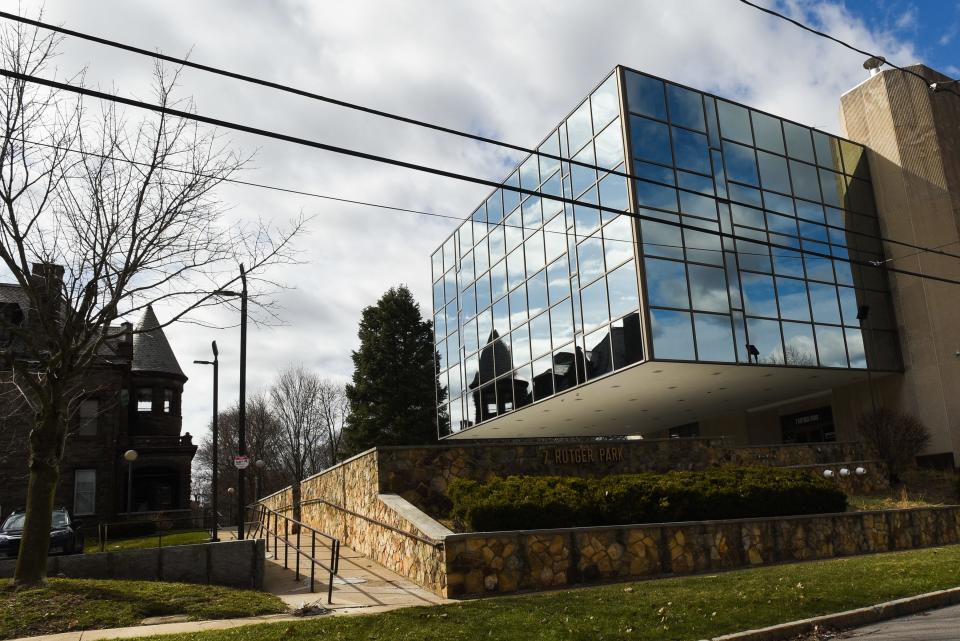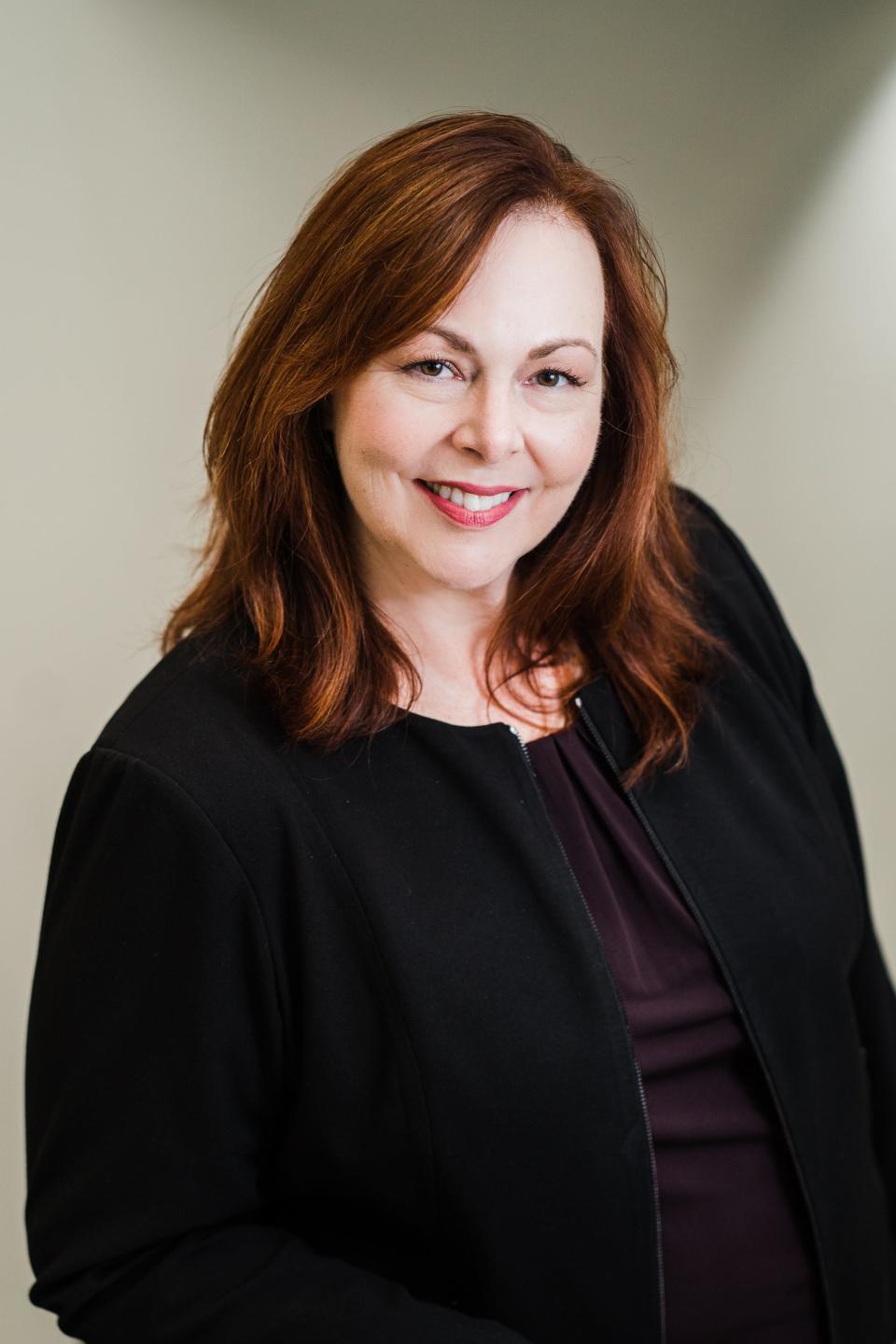Someplace to call home: Grant helps YWCA Mohawk Valley help domestic violence survivors
Local survivors of domestic violence and their children are getting some more help finding a safe place to live.
The YWCA Mohawk Valley has already put 11 heads of household with 21 children into safe, affordable, permanent housing this year thanks to a $160,000 grant, announced Monday, from the Mother Cabrini Health Foundation. The YWCA will pay for the first year of rent and provide case management services.
Once a survivor is safe and sees his or her family’s immediate needs met, that person can decide on the family’s goals and what help they need to get there, CEO Dianne Stancato said.

“If you can sleep at night,” she said, “then you can dream a little bit.”
And the YWCA will keep working with families as long as they need help.
“We never really walk away from people,” Stancato said. “We help them thrive.”
Domestic violence, gender and homelessness
Most of the survivors seeking housing are women; the YWCA has only secured housing for two or three men during Stancato’s tenure, she said.
Men are more likely to request help with advocacy and the courts, she said. There has been an uptick in the number of cases in which women have abused men, but YWCA staff aren’t sure if that’s because it’s happening more or because men are speaking up more often.
The numbers have also been going up for domestic violence in the LGBTQ community, Stancato noted.
She cited some statistics to show the urgency of the housing issue for domestic violence survivors. Among homeless women, 57% report that domestic violence was the immediate cause of their becoming homeless, she said. And 38% of people who are unhoused of all genders report having experienced domestic violence at some point in their lives, she said.
Waiting list for housing
The YWCA fights to change those statistics, providing emergency shelter to anyone, of any gender or sexual orientation, who is fleeing domestic violence as well as their children. But the nonprofit has often had a waiting list when it comes to finding permanent housing for the families it serves, Stancato said.
The waiting list meant that some people have to stay in the shelter longer; some may stay with family or friends; and some remain in the home with domestic violence, Stancato said, but stressed that the YWCA will always find emergency shelter for someone trying to leave domestic violence.

There are two main reasons for the waitlist. There isn’t enough safe, affordable housing around, something Stancato called a crisis in this area. And the YWCA doesn’t always have enough funding, which is why the Mother Cabrini grant is so important.
When people leave domestic violence situation, they often get out with just their children, the clothes on their backs and, perhaps, a single bag of possessions, Stancato said.
“So we have to start from nothing,” she said. “And that’s what we’re here for.”
Some grants pay for emergency services. Another might cover clothing, another food or furniture, others some housing expenses. It’s like reaching into different pockets to find a bit of change that, pooled together, can help meet all of a survivor’s needs.
The Mother Cabrini grant offers another deep pocket to help families move into a home of their own.
“People need the self respect,” Stancato said, “of having their own home.”
Emergency housing
The shelter itself has seven bedrooms with 16 beds which can be moved according the size of the families living there at any moment. Survivors can stay 90 days and can get 45-day extensions. The shelter does sometimes fill up, most often at time of the year with high stress in homes, specifically when it’s hot and over the holidays, Stancato said.
If it’s full, the YWCA will find more space to make sure no one has to choose between having nowhere to go and returning to an abusive situation, Stancato said.
That might be in a YWCA safe house, a motel or some place in another county, where the nonprofit sometimes has to send people to keep them safe.
Wish list
Stancato still has a few things on her wish list to help survivors of domestic violence. She’d like to put a kennel for house pets on YWCA property. Right now, the YWCA advises people to bring their pets with them when they leave home.
“An abuser that will harm you will hold your pets hostage many times,” Stancato warned.
The shelter isn’t suited for pets, but for now, the YWCA places pets, even livestock and horses, in foster homes, she said.
More: Rome is home to New York's first carbon-neutral public housing development
More: Utica embraces affordable housing projects
The YWCA could also use some funding for prevention education, Stancato said. The agency goes into schools to teach children about healthy relationships.
It can offer advice on how to recognize warning signs. It teaches a class for men and another for boys on how to have healthy relationships, she said, noting that many abusers come from a background of abuse.
But funders just offer grants for services for survivors, not education, Stancato noted.
“Great, we’ll take it,” she said. “But how do we prevent it?”
Donations
The YWCA can also use donations of new items. (Its permit doesn’t allow it to accept used goods, Stancato noted.) One perennial need is for new sweatpants and slippers, and things like that, for victims of sexual assaults to wear home from the hospital because the police take their clothes, she said.
The YWCA also operates a period pantry from which women can take free sanitary supplies. Blankets, towels and other bedding are helpful, but have to be new. There’s an Adopt-a-Family gift program over the holidays. And few people think to donate the special toiletries that women of color may need, such as products for their hair texture, Stancato noted.
Their website always has a list of the most urgently needed supplies. Stancato did suggest that all donations should be of the same quality that people use in their own homes, which helps the YWCA to spread the message that the people it helps are valuable and worthwhile, she said.
Crisis services for domestic and sexual violence
YWCA secure online chat server: ywcamv.org/chat
Oneida County Hotline: 315-797-7740. Call or text.
Herkimer County Hotline: 315-866-4120. Calls only.
This article originally appeared on Observer-Dispatch: Mother Cabrini foundation, YWCA team up for domestic violence survivors

